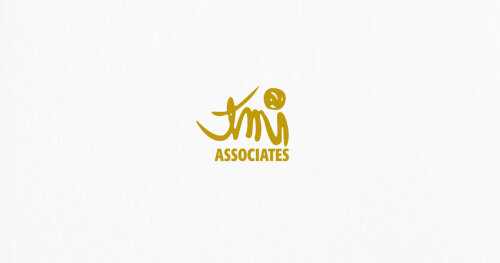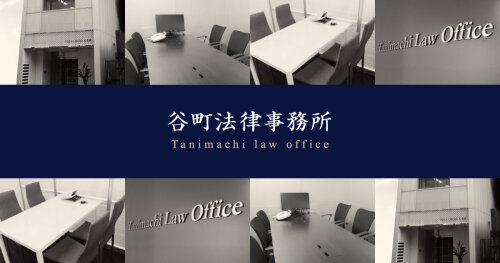Best Sanctions & Export Controls Lawyers in Japan
Share your needs with us, get contacted by law firms.
Free. Takes 2 min.
Or refine your search by selecting a city:
List of the best lawyers in Japan
About Sanctions & Export Controls Law in Japan
Sanctions and export controls law in Japan refers to a set of regulations that govern the transfer of goods, technologies, and services across Japanese borders. These laws ensure that Japan complies with international obligations, such as United Nations Security Council resolutions, and maintains national security by restricting certain exports that could be used for military or proliferation activities. The primary zoning of these laws is to prevent the contribution to weapons development programs, terrorism funding, or activities that violate international peace and security.
Japanese authorities, notably the Ministry of Economy, Trade and Industry (METI), oversee the implementation and enforcement of these laws. Entities involved in exportation, re-exportation, or international business transactions must understand and comply with Japanese sanctions and export controls to avoid severe penalties.
Why You May Need a Lawyer
Navigating the complexities of sanctions and export controls law in Japan can be challenging for individuals and companies. You may need a lawyer if you are:
- Engaging in the export or import of sensitive goods, technologies, or dual-use items
- Doing business with countries, entities, or individuals subject to Japanese or international sanctions
- Facing government investigations or enforcement actions regarding potential violation of sanctions or export control laws
- Establishing compliance programs for your business to ensure lawful conduct
- Seeking licenses or permits required for exporting controlled items
- Uncertain if your proposed business activities are permitted under current regulations
- Responding to sudden changes in diplomatic or security-related restrictions
A lawyer experienced in Japanese sanctions and export controls can help you interpret regulations, apply for necessary authorizations, and minimize legal risks.
Local Laws Overview
Key Japanese laws and regulations related to sanctions and export controls include:
- Foreign Exchange and Foreign Trade Act (FEFTA) - This is the central law governing export controls and economic sanctions in Japan. It requires government permission before exporting specific goods or technologies, and it authorizes the restriction of transactions with certain foreign countries, entities, or individuals.
- Export Trade Control Order and Foreign Exchange Order - These government orders supplement the FEFTA by detailing the lists of controlled items (including military goods, dual-use technologies, and sensitive information).
- Catch-All Controls - Japan applies controls even to items not specifically listed when there is a concern that they may be used in weapons development or military applications.
- End-User and End-Use Checks - Exporters must conduct thorough checks on the end-users and intended end use of exported items, especially if the destination country is subject to greater scrutiny or sanctions.
- Sanctions Lists - The Japanese government issues lists identifying sanctioned individuals, organizations, and countries. These are updated frequently in response to international developments.
- Administrative Guidance and Penalties - Violations can result in administrative guidance, criminal penalties, fines, and even imprisonment.
It is crucial to stay updated on Japanese regulatory changes, especially given the frequent updates to sanctions and controlled items lists.
Frequently Asked Questions
What are export controls in Japan?
Export controls in Japan are laws and regulations that restrict or require permission for the transfer of certain goods, technologies, or services outside Japan, in order to prevent proliferation, uphold international security, and meet treaty obligations.
Who enforces sanctions and export control laws in Japan?
The Ministry of Economy, Trade and Industry (METI) is primarily responsible for enforcing export control laws, with support from the Ministry of Finance and Ministry of Foreign Affairs. Customs officers also play a role at points of export.
What items are subject to export controls?
Items subject to export controls include arms, military equipment, dual-use goods, certain chemical and biological products, sensitive machinery, advanced technologies, and items on government-published control lists.
Do Japanese sanctions apply to foreign companies?
Sanctions may apply to foreign companies if they conduct business in Japan, use Japanese goods or technology, or are involved in transactions that have a nexus with Japan or Japanese persons.
How do I know if my business partner is on a sanctions list?
The Japanese government publishes lists of individuals, companies, and countries subject to sanctions. You are required to conduct due diligence and check these lists before engaging in transactions.
What should I do if I unintentionally violate export controls?
If you suspect or discover a violation, promptly seek legal advice. Voluntary disclosure to authorities may reduce penalties, but legal counsel is crucial to determine the best course of action.
What are the consequences of violating export control laws?
Consequences can include heavy fines, revocation of export privileges, criminal prosecution, imprisonment, and loss of business reputation. Administrative sanctions may also be imposed.
Do I always need a license to export controlled goods from Japan?
Yes, for items on the control lists or if your transaction falls under catch-all controls due to destination or intended use. Licensing requirements vary depending on the specific item and country of destination.
How often do regulations change?
Regulations and control lists are updated frequently, often in response to international events or United Nations Security Council decisions. It is essential to monitor updates regularly.
Can a lawyer help with compliance programs?
Yes, a lawyer with expertise in this area can help design, implement, and audit internal compliance programs to ensure your company meets all legal requirements and avoids unintentional violations.
Additional Resources
Several resources and organizations provide information and support regarding sanctions and export controls in Japan:
- Ministry of Economy, Trade and Industry (METI) - Oversees export controls licensing and compliance
- Ministry of Foreign Affairs (MOFA) - Issues guidance on international sanctions policies
- Japan External Trade Organization (JETRO) - Provides support and information for exporters
- Japan Customs - Offers guidance on customs declarations and export procedures
- Japan Association for International Chemical Information (JACI) - Provides information for chemical exporters
- Relevant industry and trade associations for sector-specific guidance
- Embassies and international chambers of commerce - Useful for updates on country-specific restrictions
Next Steps
If you believe you may be affected by sanctions or export controls in Japan or need assistance with compliance, take the following steps:
- Identify your business activities and whether they involve controlled goods, technologies, or transactions with sanctioned entities or countries
- Review the latest regulations, control lists, and government guidance relevant to your activities
- Contact an experienced sanctions and export controls lawyer in Japan for tailored legal advice
- Collect and organize all relevant documentation, such as product specifications, transaction records, and due diligence files
- If required, seek assistance with preparing and submitting export license applications or voluntary disclosures
- Develop internal compliance policies or seek review of your existing programs to ensure ongoing compliance
Staying proactive and seeking timely legal advice can help you avoid significant legal, financial, and reputational risks associated with sanctions and export controls violations in Japan.
Lawzana helps you find the best lawyers and law firms in Japan through a curated and pre-screened list of qualified legal professionals. Our platform offers rankings and detailed profiles of attorneys and law firms, allowing you to compare based on practice areas, including Sanctions & Export Controls, experience, and client feedback.
Each profile includes a description of the firm's areas of practice, client reviews, team members and partners, year of establishment, spoken languages, office locations, contact information, social media presence, and any published articles or resources. Most firms on our platform speak English and are experienced in both local and international legal matters.
Get a quote from top-rated law firms in Japan — quickly, securely, and without unnecessary hassle.
Disclaimer:
The information provided on this page is for general informational purposes only and does not constitute legal advice. While we strive to ensure the accuracy and relevance of the content, legal information may change over time, and interpretations of the law can vary. You should always consult with a qualified legal professional for advice specific to your situation.
We disclaim all liability for actions taken or not taken based on the content of this page. If you believe any information is incorrect or outdated, please contact us, and we will review and update it where appropriate.
Browse sanctions & export controls law firms by city in Japan
Refine your search by selecting a city.
















